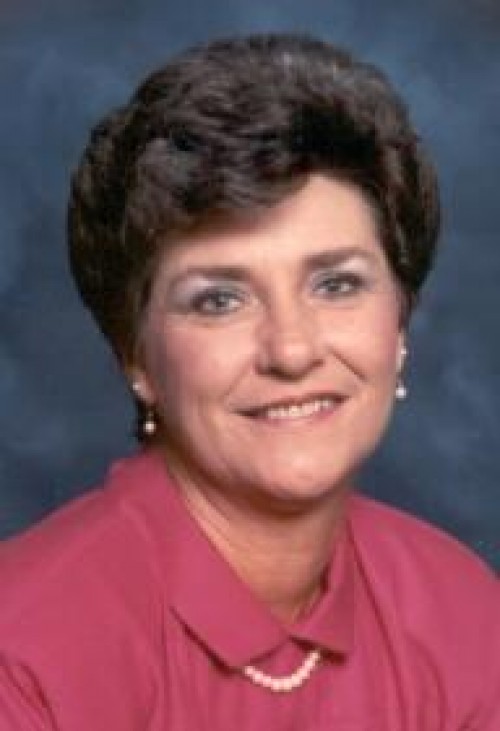
Judy Ledet
May 14, 2007Jill Lyons
May 16, 2007They don’t get recognition for making the big play to win a game in the final minute.
They don’t get recognition for making the key decision in the final seconds, to put a team in the position to win a game.
And they certainly don’t get recognition for being the “12th Man” … well, unless your favorite team just lost a heartbreaker on a controversial penalty that stalled the game-winning touchdown drive at the 50-yard line.
How could he call holding?
Well, because that’s what the referee saw.
If they get any attention at all, it’s more often than not negative attention. But Hank Vicknair, president of the South Central Football Officials Association, says the job of officiating is one he loves.
“We do it for fun,” says Vicknair. “People who graduate from high school, that don’t have the chance to go the collegiate route are the ones that most often come officiate football. You’re on the field, and you’re in the action.”
The South Central association is one of nine bodies that make up the LHSAA Official Association.
And Vicknair, who’s been officiating for 16 years, has been in the action amongst some of the best players to come out of Louisiana. “I was fortunate, and got to watch all of the Mannings,” the referee said of Peyton, Eli and Cooper. “When I was at New Orleans, they were at Newman. I got to watch all of them grow up and go on in college.”
The player that Vicknair says is a pleasure to watch for this upcoming season is St. James’ Luther Ambrose. “Last night,” he said. “Spring game. Oh my God, this guy’s quick. He’s great.”
But as anyone knows, officiating isn’t about watching the big plays. It’s about making sure the game goes the way the rule book says it should. And Vicknair is well aware of that.
Other than covering various junior high and high school games throughout the week, it is important to continuously study rules throughout the season. “You have to review the rulebook,” he says. “Not only do you have to know the rules, you have to know the mechanics.”
Requirements to referee include being a high school graduate (are having a GED equivalent), attending a state clinic held by the LHSAA Commissioner and scoring at least a 70-percent on a supervised test that is given each year.
And after five years?
The opportunity to take the next step: the NCAA.
“You basically start in a small conference first,” said Vicknair. Those conferences include, locally, the Southland Conference or Conference USA. “Then you move up from those into the premier conferences like the SEC, or the Big XII.
“If you’re good enough at that point the NFL Europa and the Arena Football’s are available,” he added. “Then after Europa, you go to the NFL.”
But for that dream to be realized, an official must earn his keep on Friday nights. And currently, Vicknair says there is a shortage of officials.
Currently, there are around 60 officials in the Houma-Thibodaux area, says Vicknair. “We would like to be at least 75 or 80,” he added. “Our goal this year is to have 20 new officials.”
But that goal seems farfetched. When Vicknar first left the New Orleans area, and became head of the South Central Football Officials Association, the numbers were at around 50 officials. “We recruited (officials) heavily in the River Parishes,” he said.
“Then we recruited around Thibodaux and Houma, and brought in some other people.
“All it takes to help this out,” added Vicknair, “is if we could only get each official to bring one person in. If every official could bring one person in, we wouldn’t have a shortage.”
One thing that could help is the recent pay raise, approved by the LHSAA, in April. According to Vicknair, most officiating positions got a nearly a $20 increase in pay-per-game. “We are hoping that it will allow us to attract some other people,” he said, “or old officials that left. We’re hoping that they come back, because we need them.”
The importance of having a high number of officials is simple: The game can’t happen without them. “This is for the kids,” said Vicknair. “Without us, they can’t play football.”
Meaning?
An official’s job is significant in more ways than one. One bad call could cost a coach his job, which is why Vicknair takes his responsibility so serious. “When we go out there, what we do on the football field as officials, affects that coach’s job,” explained Vicknair. “I hate to say this, but we can determine a coach’s tenure at the school. That’s their livelihood, so they want the best kind of officials that they can have on the football field.
“All officials have to realize that. What we do sometimes mandates what happens to a head coach. You want to be professional at all times.”
Which shouldn’t be tough, considering that one bad call could get an official the same kind of a recognition that a player would get for not making the big play to win the game in a final minute.
Or the same kind of recognition that a coach would get for not making the key decision in the final seconds, to put a team in the position to win a game.
Twelfth man?
A farfetched accusation made by fans of the team that just lost.
Such is life for a referee. Even still, Vicknair, along with many others, is loving the journey officiating has taken him on. “I was 18 when I started,” he said. “From that point forward, I came in and never looked back. I’m having a great time.”
Staff photo by Matt LeBlanc * Tri-Parish Times * Southeast Louisiana is currently facing a shortage of high school referees. A recent payraise and a more concerted effort to recruit recent high school graduates are possible ways to increase that shortage, says Hank Vicknair, president of the South Central Football Official’s Association.









